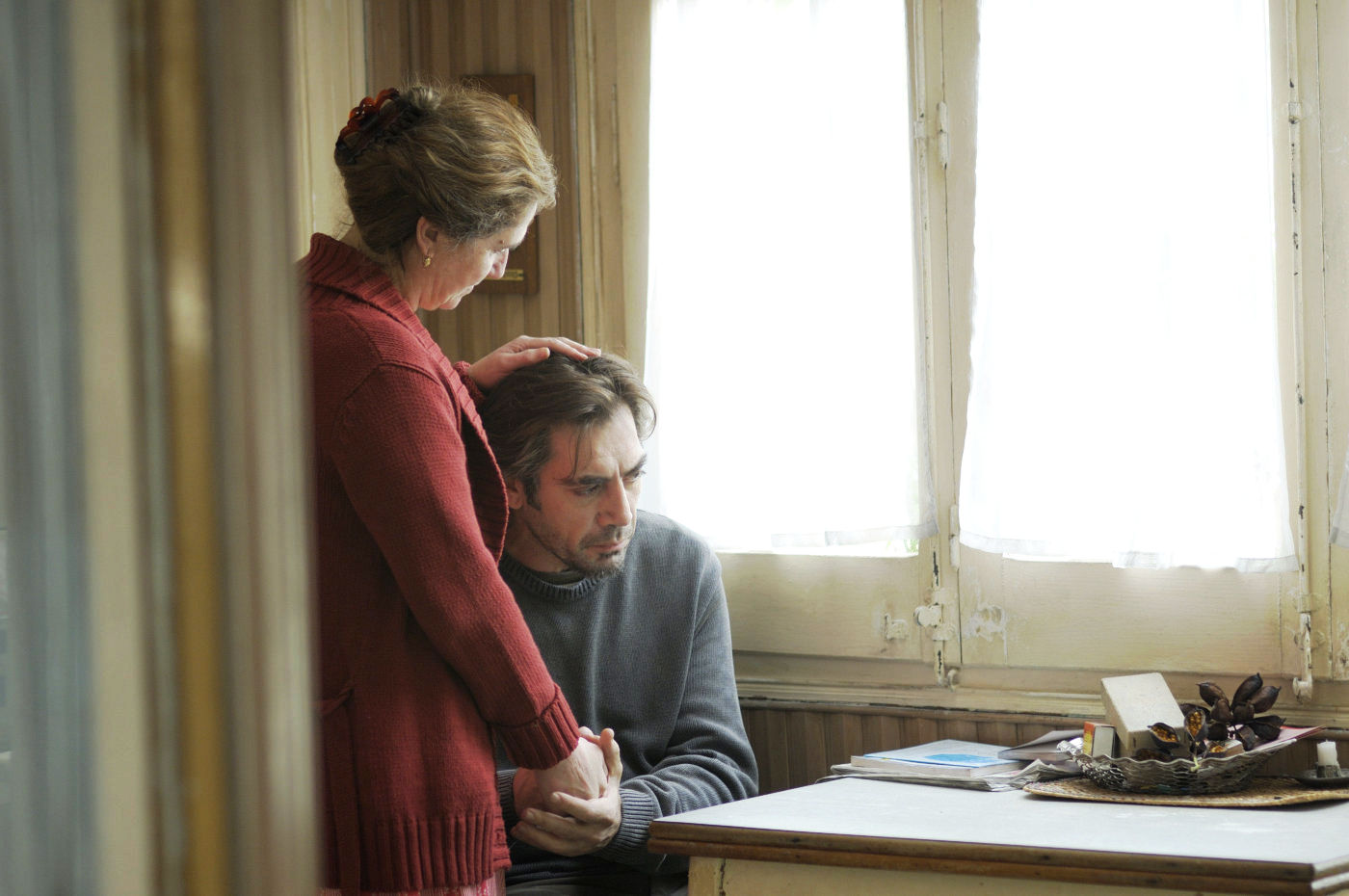There are things that I really found interesting about this film; first and foremost, the telepathic aspect of this movie. As this film is more a mediation on death than anything else, it’s interesting to make the protagonist a character that is 100% certain that there is some sort of existence after death. Uxbal walks around with the weight of death constantly on his shoulders, but at the same time the thought of dying doesn’t seem to bother him- what bothers him more is not knowing how his kids will survive after his passing. Death, for Uxbal, is not the end, but just another doorway; a gateway to something else. Death becomes not a thing to fear so much as it is a thing to welcome.
“If you devote all of your future energy to living, you will not be able to die well. You must begin to shift gears, a little at a time. Living and dying are, in a sense, of equal value.” -Haruki Murakami, 1Q84
A lot of the themes of this film could be boiled down to this one quote (I love Murakami!). Uxbal seems to be searching for a way to pass on that will give his life more meaning than it had when he was living it; a final exclamation point at the end of that last sentence. This film is about presupposing that life does not end at death, and letting that guide your actions in this life, so that you might find your way forward in the next.
Verdict:
I really liked some aspects of this film, and others I thought were a little indulgent and pretentious. I also thought this film was a bit long, and while I think a few edits would’ve improved the pacing, I’m sure the slow deliberate pacing was exactly what Inarritu wanted. In my opinion, Inarritu’s later films are the better ones- I love “Birdman”, and “The Revenant” was really good too. While this is a good movie, I can’t say I’ll return to it any time soon. I don’t mind a dark and depressing film, but one that mires about in depression for this long isn’t good for my mental health. Sadly, I said a similar thing about one of the other films I reviewed for our Cinema World Tour: Spain series- “The Skin I Live In”. Both films were well done, but difficult to get through.
“Biutiful” lost the Best Foreign Language Oscar to “The Secret in Their Eyes”, which I loved! Coincidentally it’s also in Spanish, though it’s from Argentina- that one is also disturbing, but not as depressing ( it’s much better than this). It’s also really intriguing and fast paced where this film is more methodical and meditative.









